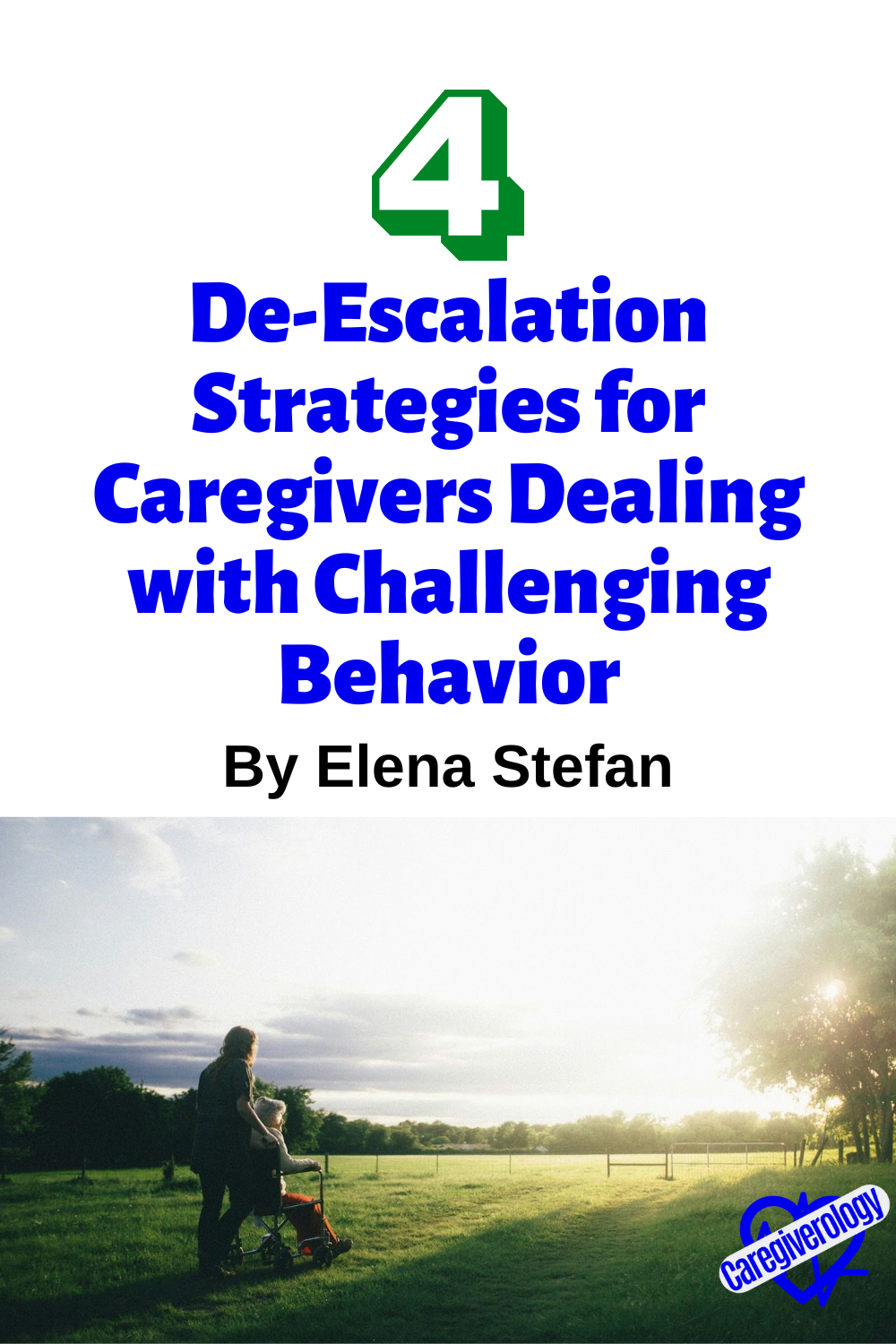4 De-Escalation Strategies for Caregivers Dealing with Challenging Behavior

The profession of a caregiver requires a lot more than just performing the usual tasks. It requires more personal qualities like patience, communication, and empathy. These professionals are unsung heroes and usually the last line of defense in the world of patient care, during times patients can barely look after themselves in dire situations.
That being said, it's not always easy for patients, and when going through health difficulties, tensions might rise in the midst of things, so de-escalation needs to happen. Let's look at four of the main strategies that can be used in these scenarios; these are important for anyone, but are especially essential skills for healthcare professionals and students like those enrolled in nursing programs online.
What is De-Escalation?
De-escalation refers to the skill of cooling things off when situations get a little heated. This can be in almost any situation, not simply related to caregiving. You can de-escalate in a crisis scenario, extreme circumstances like hostage situations, or even in family disagreements. It's all about keeping everyone calm when things start to go a little haywire.
If you're in caregiving specifically, you already have a wide range of skills to use, but tensions often rise, and you need to flex that de-escalation muscle. The methods usually stem from soft skills like communication and empathy, but there are some more specific things that we can do, with the predominant aim of creating understanding between others and preventing situations from getting worse.
1. Take the Active Listening Approach
If you're looking to de-escalate a situation, the first thing you should do is give full attention to the seemingly hot-headed person. No one wants to be ignored or disregarded, especially in a situation where they are already upset because their needs might not be catered for. So, the best thing to start off with is to be quiet and listen with a calm approach so you can slowly move toward resolution.
This can be particularly important with individuals suffering from things like dementia or other serious illness or condition. These individuals can have problems with interpreting reality, so how they see things may differ completely from yours. If you spend time understanding where they are coming from, you might be shocked by how fast they can calm down.
2. Give Choices to Your Patient
Behaviors that are problematic often come from a sense of powerlessness or a loss of control. When caregivers of various kinds give the people they care for the option to choose, it provides those people with a sense of agency. That can reduce some feelings of being forced into a situation where they feel powerless. If you can engage in a model where you give people choices, it typically leads to better outcomes.
3. Adopt a Calm Demeanor
It's vital to maintain a relaxed demeanor and calm body language when dealing with difficult situations or individuals, as this reduces tension. Making others feel comfortable helps them express themselves more freely. This can be done through more positive gestures that promote openness, like keeping arms uncrossed and smiling, which are both strategies that display openness and encourage connection.
Try to always be aware of your posture and body language, as these can be rather subconscious. Whether you're standing tall, sitting upright, or relaxed, can impact how you are perceived, so make sure you're avoiding any threatening gestures. It can be as simple as having a gentle gaze or nodding in agreement.
4. Use Respectful Language
When having a conversation with someone during a heated exchange, it's important to stay aware of your word choice and language. The right communication methods can make or break the exchange, and it's about refraining from using provocative words and blaming others. This could mean not using the word "you" too much to avoid the other person feeling like they are being blamed. This approach promotes an exchange and more of a mutual understanding, as opposed to pure accusation.
It can be very difficult to de-escalate situations when you're a caregiver. The main focus is to calm everyone in the situation and ensure everyone feels understood. Human beings are simple and often operate on mutual respect. Ensuring that everyone’s needs are met is key to de-escalating most situations. Keep the above advice in mind and you should be well-armed when going into a tense situation.
Thank you Elena Stefan for contributing this article.
Mental Health and Support Articles
From 4 De-Escalation Strategies for Caregivers Dealing with Challenging Behavior to Home
Recent Articles
-
Common Truck Crash Injuries and Legal Remedies - Caregiverology
Jul 19, 25 10:49 AM
Known for its sun-drenched beaches, vibrant arts scene, and bustling maritime industry, Fort Lauderdale is a city that sees heavy traffic both on its roads and at its busy port. Unfortunately, with th… -
Why Expert Legal Help Matters After Serious Injury - Caregiverology
Jul 19, 25 10:35 AM
In Houston, over 67,600 car crashes occurred in 2023, resulting in 290 fatalities and 1,612 serious injuries. That’s roughly 185 accidents every day. -
How Life Care Planners Support Injury Recovery - Caregiverology
Jul 19, 25 10:18 AM
In Los Angeles, life care planners play a vital role in supporting injury recovery, especially for individuals facing catastrophic injuries such as traumatic brain injuries or spinal cord damage.





New! Comments
Have something to say about what you just read? Leave a comment in the box below.